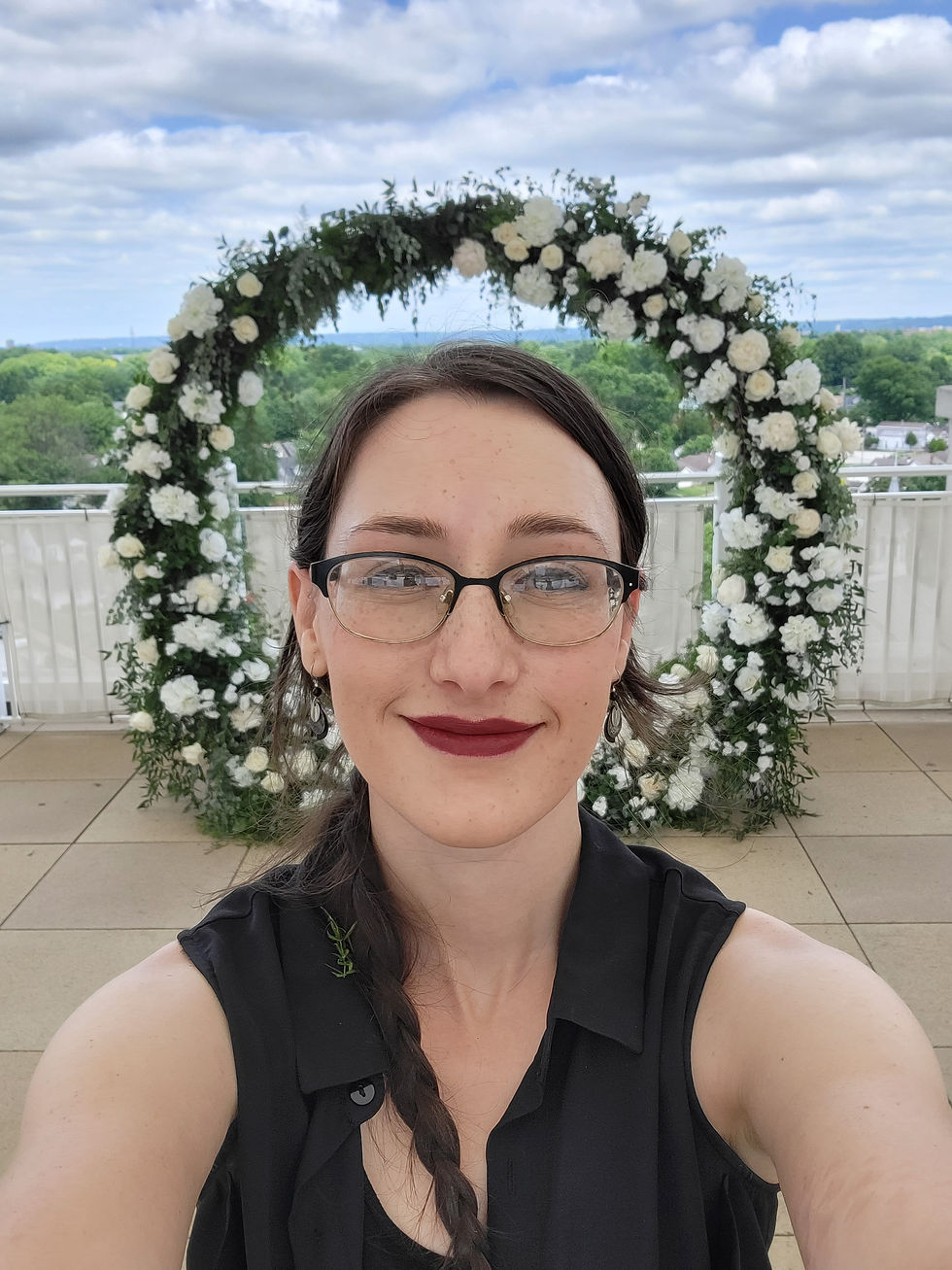Written By: Lissa Lavey

✨ This post is the 2nd in a multi-part story. If you are just joining us, you can also read part one here. ✨
“I’m so sorry. It’s called MRKH. You were born without a uterus.”
As if sorry could somehow give me my missing organ.
It’s almost funny. At sixteen, when I received my diagnosis, I didn’t know what I wanted to do for a living. I knew what I liked to do—write, obviously—but not what I would do as my career. The future was hazy. But to me, like countless other women who grew up hearing about The American Dream, the future held a house, a spouse, and 2.5 kids. Life is funny like that.
“Don’t worry, you’re still a woman.”
My spiraling brain latched onto the absurdity of that statement. Excuse you, what? As if my uterus—or surprisingly, lack thereof—immediately made me less of a woman. Perhaps some women felt that way after diagnosis. I did not. My face must have shown puzzlement at the ridiculous statement because the female doctor continued on heedlessly. “One in four thousand five hundred women end up with this diagnosis. It doesn’t make them any less a woman.”
“Of course, it doesn’t,” I said in the most teenage-duh tone I could manage.
The rest of the visit was filled with discomfort and medical terms I promptly forgot, too stunned to process everything. Malformed or missing kidneys, spinal issues, and missing fallopian tubes weren’t uncommon either as they developed around the same time in vitro. As it turned out, teenage years weren’t an uncommon time for infertility diagnoses. The other common diagnosis time frame was when women were struggling to become pregnant and reach full term.
If this single birth defect affected one in four thousand five hundred women, how many other people were affected by different kinds of infertility?
One in five couples in the US.

I fell down the harrowing hole of research and frightened myself even further than the doctor had and then ignored it for two years. Could I have an operation? Sure, but the likelihood of success wasn’t great and there was no long-term data on the health of the children born from the transplanted organs. Could I have a surrogate? Yes, for a price. More money than I had ever dreamed of at sixteen.
I pushed my disorder out of existence except for the random burst of tears at a baby stroller and cutting off all of my babysitting gigs. I made any and every excuse to avoid being near children.
Upon reflection, it was probably the first stage of grief, but I threw myself into sports, clubs, and college applications—anything to avoid processing what I had learned. I had applications, then college, then career goals, and a whole lot of living to do before even considering a family. This was a later problem.
One in five couples. One in ten people. It’s really nine percent of men and eleven percent of women, but the math averages out.
One in ten. And yet I had never felt so alone. This wasn’t the sort of topic that was discussed.
Why was this barely covered in school? My health class had 36 students in it. That meant statistically, there were two or three other people in that class who would get the stamp infertile. My graduating class size was 886 people. Which meant nearly one hundred students would find themselves in a doctor’s office sitting on those uncomfortable seats, shell-shocked as I was.
Why wasn’t this discussed?

It was two years before I moved through the grieving process. Before I really took the time to process. I was in a largely female college, at the next step of my life. I was always awkwardly saying I didn’t have any today when friends asked me for pads or tampons—nodding in commiseration when they complained about cramps and acne and swigging down birth control with soda and pizza. I listened to them as if learning a different language when they lamented about their symptoms, so I never asked any questions or made statements that would give me away.
I felt alone. I was alone, hiding in plain sight. Slowly, I learned to be careful of the few people I shared my diagnosis with. A few mishaps occurred where shock and curiosity got the better of their tongues, and they asked questions that stung like barbs. Are you still a woman?
Why did people keep asking that? As if my uterus defined me.
One in ten.
Why was no one talking about this?
It wasn’t until last year I had an answer to the question that had filled the space where my uterus should have been. Why wasn’t anyone talking about this? Because talking about it hurt and it was easier to hide in plain sight. Admitting that something was wrong, that the word barren jarred me for almost a decade, was a vulnerability I couldn’t admit to for a long time.
So this is for you, my one in ten: when you’re ready to speak, I’ll raise my voice with you.
Meet the Author

Lissa Lavey
Elissa Lavey, Lissa, is a copywriter who uses her skill with a keyboard to bring compassion and awareness to topics often uncomfortable to discuss, especially fertility issues. Content in the role of Critter Mom and mentor to young creatives, she uses her personal experiences to break the silence around infertility so others can be more compassionate too.

Comments